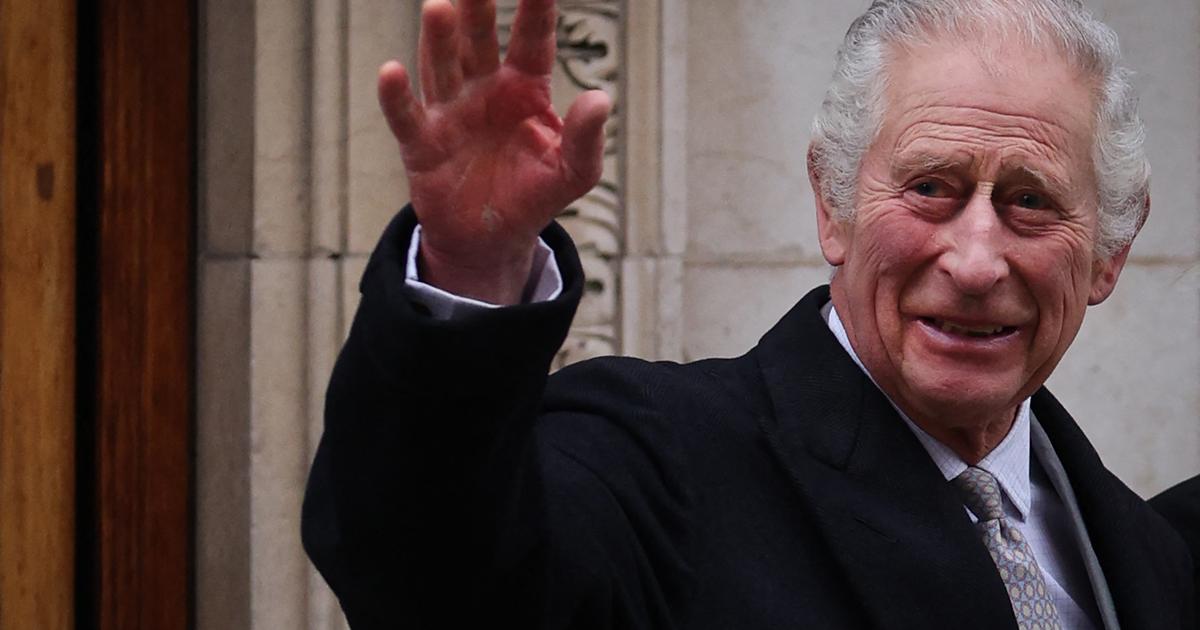Barely a year after the start of his reign, King Charles III is suffering from cancer, Buckingham Palace said in a statement on Monday February 5.
The disease was apparently discovered during a stay at the king's hospital a week earlier to undergo prostate surgery.
Robert Hazell, professor specializing in the Constitution at the University of UCL, co-author of an inventory of the British monarchy published last April, explains what the law provides in the event of serious illness of the monarch.
LE FIGARO. - King Charles III announced Monday evening that he was suffering from a form of cancer. What are the consequences of this announcement for the British Crown?
Robert HAZELL
- At first glance, none.
He remains king and will remain so until he becomes formally incapable of carrying out royal duties.
In this case, a regency would then be declared and the heir apparent, Prince William, would become regent.
The regent is a sort of interim king who has the same powers as the monarch.
The last regency was in the early 19th century, when someone we all know as the
"Prince Regent"
held that office for almost ten years, from 1811 to 1829, as his father King George III had become mad.
A regency can only be declared if the monarch is, by law, incapable of carrying out his royal duties due to infirmity of body or mind.
And this must be formally certified by three of the five most senior jurists and politicians, including Queen Camilla.
This is the constitutional limit if the king becomes unfit to fulfill his duties.
Let's hope it doesn't come to that.
Is there an intermediate step?
What should start to happen is what might be called a
"soft"
regency , where there is no official talk of a regency because the king is not too affected, but where other Important members of the royal family are beginning to take on some of his duties, as there are very few things only the sovereign can do.
All public appearances can be made by any member of the royal family.
For example, there is a very regular procession of ambassadors who, when they arrive, are invited to the palace to introduce themselves.
Prince William or another family member can easily do this.
Likewise, most of the king's public and private meetings, even his weekly audience with the prime minister, do not necessarily have to occur with the monarch.
Here too William could take charge, which would be a good thing to prepare to become king.
The opening of Parliament can also be delegated, as we saw in the final years of the Queen's life, who found it increasingly difficult to travel.
Part of the opening ceremony of parliament involves reading the government's program in the House of Lords: this was called the Queen's Speech.
But at the end of his life this speech was delivered by Prince Charles on his behalf.
What powers can he not delegate?
The list is quite short.
The appointment of ministers, and the royal approval of laws passed by Parliament.
But it is above all administrative: as long as Charles can continue to sign state documents, he can fulfill the functions of the monarchy.
He doesn't have to appear.
In fact, there was a long period when Queen Victoria did not appear in public after the death of her husband, Prince Albert, because she was in mourning.
King George VI also suffered from cancer, but the illness was sudden and very serious.
He smoked a lot and eventually died of lung cancer.
Queen Elizabeth was in Africa at the time, and had to return quickly.
Between his father's illness and the convalescence of his wife Princess Kate, Prince William is placed in a delicate situation...
A lot of pressure weighs on Prince William but when the situation is serious, we know that the royal family always puts his public duty before any private concerns.
This is a very conscientious family.
The Queen has long set an example by putting her public duty first, King Charles has followed in his mother's footsteps and I expect Prince William to follow the same example.
I think that there is absolutely no risk for the monarchy and that on the contrary, the king's illness will arouse an outpouring of empathy and support from public opinion.

